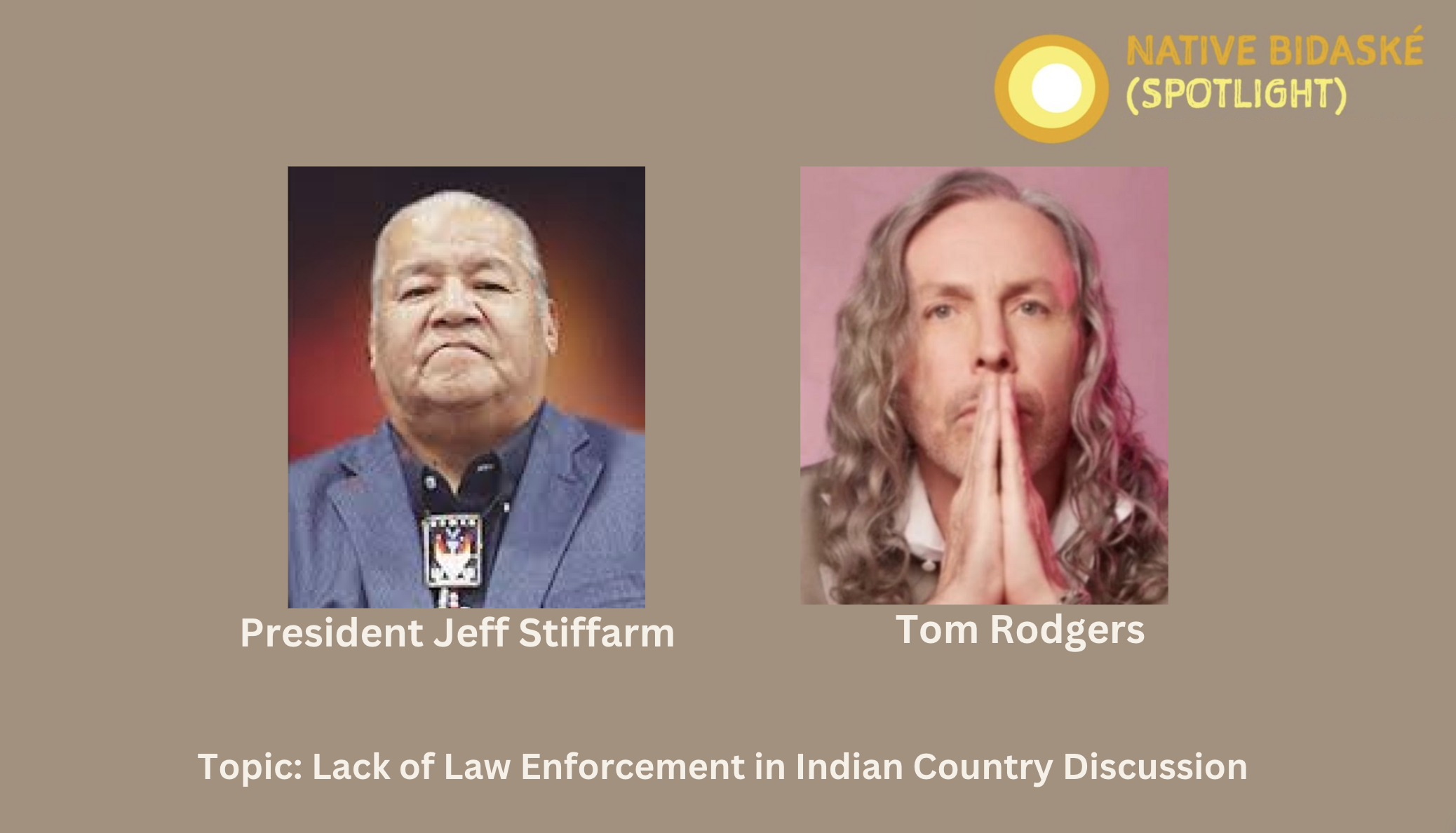
- Details
- By Native News Online Staff
Tune in this Friday, August 30, 2024 at 12 noon - EDT, as Native News Online editor Levi Rickert interviews Assiniboine (Nakoda) and Gros Ventre (Aaniih) Nations of the Fort Belknap Indian Community President Jeff Stiffarm and Tom Rodgers (Blackfeet), President of Carlyle Consulting about the lack of law enforcement on Indian reservations.
Two weeks ago, Sen. Jon Tester (D-MT) wrote a letter to the comptroller general at the Government Accountability Office (GAO), to say the Bureau of Indian Affairs (BIA)’s public safety efforts in Montana are unacceptable.
Tester went further. He demanded answers as to why the BIA there is a shortage of law enforcement officers.
“While there are many shortcomings to discuss, none are more clear than the extreme lack of trained law enforcement officers on each reservation,” Tester wrote. “Tribal law enforcement officers are being asked to patrol reservations the size of some U.S. states while consistently understaffed.”
The shortage of tribal law enforcement on reservations has yielded a myriad of problems, such as the Missing and Murdered Indigenous Persons (MMIP) epidemic, large flow of drugs onto tribal lands.
Stiffarm and Rodgers discuss the issue and offer some recommendations on how to arrest the ongoing problems.
Tune in to Native Bidaské LIVE this Friday, August 30, 2024, at 12 Noon ET on Native News Online's Facebook, X (Twitter), or YouTube channel.
More Stories Like This
Native News Weekly (August 25, 2024): D.C. BriefsDeb Haaland Rolls Out Affordability Agenda in Albuquerque
Boys & Girls Clubs and BIE MOU Signing at National Days of Advocacy
National Congress of American Indians Mourns the Passing of Former Executive Director JoAnn K. Chase
Navajo Nation Mourns the Passing of Former Vice President Rex Lee Jim
Help us defend tribal sovereignty.
At Native News Online, our mission is rooted in telling the stories that strengthen sovereignty and uplift Indigenous voices — not just at year’s end, but every single day.
Because of your generosity last year, we were able to keep our reporters on the ground in tribal communities, at national gatherings and in the halls of Congress — covering the issues that matter most to Indian Country: sovereignty, culture, education, health and economic opportunity.
That support sustained us through a tough year in 2025. Now, as we look to the year ahead, we need your help right now to ensure warrior journalism remains strong — reporting that defends tribal sovereignty, amplifies Native truth, and holds power accountable.
 The stakes couldn't be higher. Your support keeps Native voices heard, Native stories told and Native sovereignty defended.
The stakes couldn't be higher. Your support keeps Native voices heard, Native stories told and Native sovereignty defended.
Stand with Warrior Journalism today.
Levi Rickert (Potawatomi), Editor & Publisher


